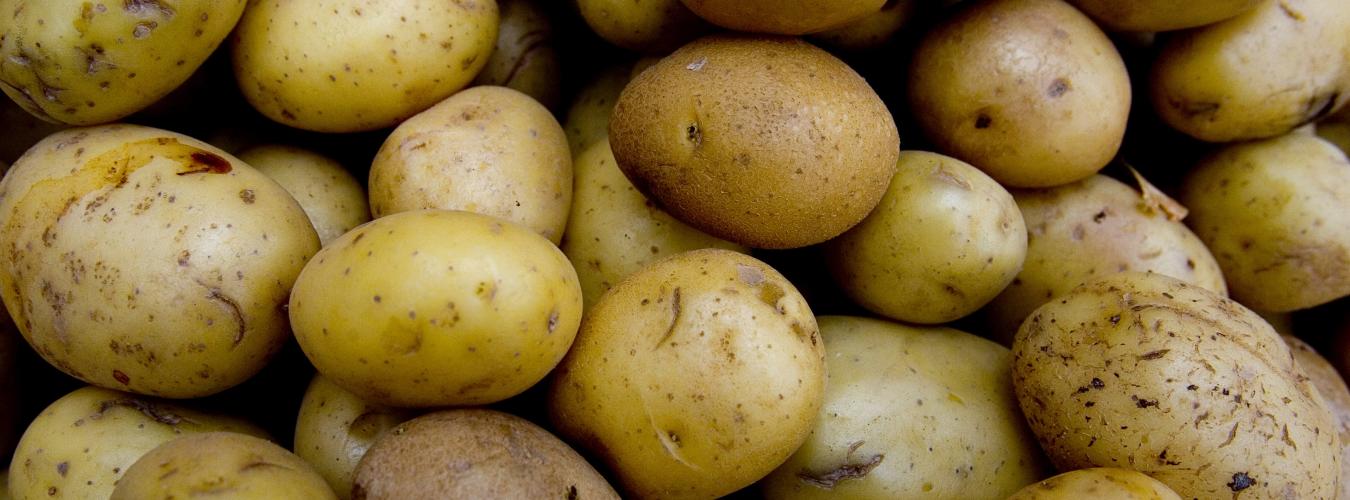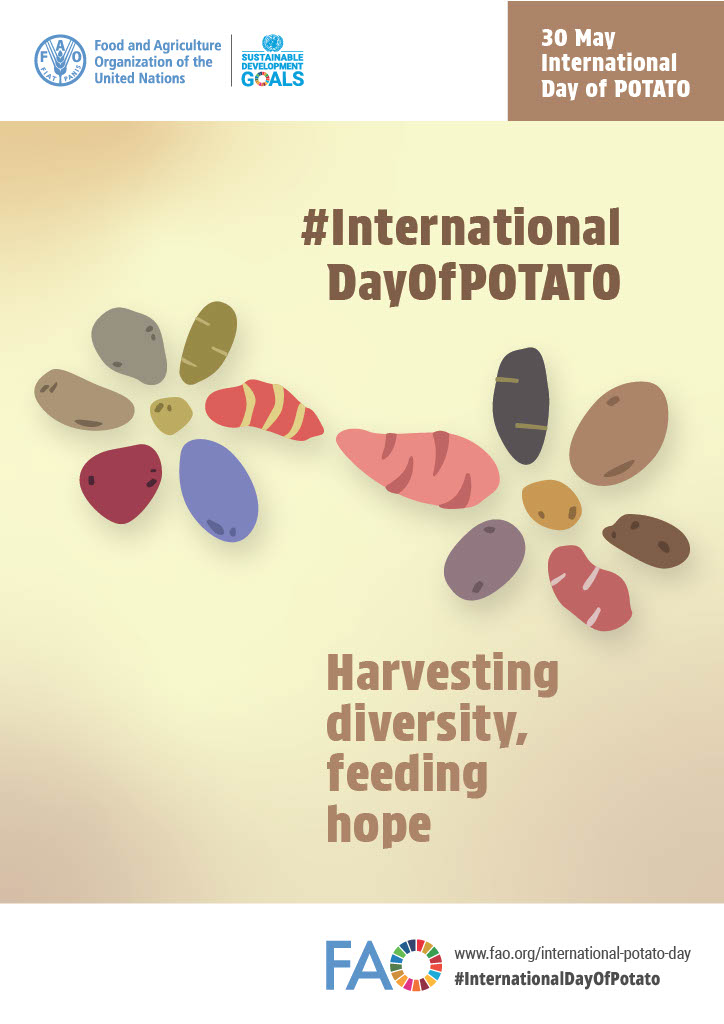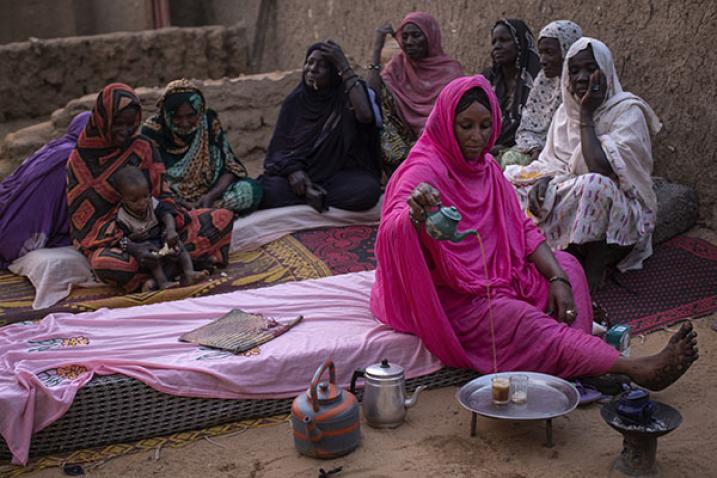One crop, much potential
A millennia-old food with origins in the South American Andes region that made its way to Europe in the 16th century then spread around the world, the potato is much more than a source of nourishment.
Potatoes are an important component of strategies to provide accessible and nutritious food and improved livelihoods in rural and other areas where natural resources, especially arable land and water are limited and inputs expensive. The crop's versatility and ability to grow in a variety of conditions make it an advantageous crop choice.
Potatoes are also a climate-friendly crop, as they produce low levels of greenhouse gas emissions in comparison to other crops.
In the past decade, the global production of potatoes has increased by 10 percent, leading to growth in employment and income, but more work still needs to be done to harness the full potential of the crop in the quest to end hunger and malnutrition globally.
In addition, there is a wide spectrum of diversity among potatoes, with over 5,000 improved varieties and farmers’ varieties/landraces, many of which are unique to their original location in Latin America. The 150 wild relatives of the cultivated potato show a wide genetic variation with a range of traits, including the ability to adapt to different production environments, resistance to pests and diseases, and different tuber characteristics. They are a repository of the heritable traits for the continued genetic improvement of the crop to respond to ever changing environmental conditions, new biotypes of pests and diseases and consumers’ preferences.
Harvesting diversity, feeding hope
In 2024, we celebrate the first International Day of Potato by focusing on the contribution of the potato to the lives of producers and consumers with the theme: Harvesting diversity, feeding hope. #InternationalDayOfPotato
Background
The potato represents one of the most important contributions of the Andean region to the entire world, as it is one of the five main food crops consumed in the world, contributing to food security.
Small-scale and family farming production of the potato, particularly by rural farmers, including women farmers, supports efforts to reduce hunger, malnutrition and poverty, and achieve food security, and relies on and contributes greatly to the conservation and sustainable use of biodiversity.
In December 2023, the General Assembly decided to designate 30 May as the International Day of Potato to raise awareness of the multiple nutritional, economic, environmental and cultural values of the potato and its contribution as an invaluable food resource and as a generator of income for rural families and producers, with a view to implementing the 2030 Agenda for Sustainable Development and achieving its Sustainable Development Goals.
Did you know?
- About 2/3 of the world's population consumes potatoes as its staple food; nearly 50% of potatoes are used as the household staple food or vegetable.
- The potato is resistant to drought, cold, and barren land with wide adaptability.
- By 2030, the total production of potatoes will reach 750 million tons, with an increase of 112%, of which the production of Asia, Africa and Latin America will exceed 440 million tons, with an increase of 100%, accounting for about 59% of the world.
Resources
- International Day of Potato (A/RES/78/123)
- FAO: International Day of Potato website
- FAO: A guide to the International Day of Potato 2024
- FAO: Social media assets
- FAO: Campaign materials
- FAO crop information: Potato
- Role and Potential of Potato in Global Food Security
- International Year of the Potato 2008
- International Year of the Potato 2008 — New light on a hidden treasure
- Sustainable Potato Production — Guidelines for developing countries
- Potatoes — So Familiar, So Much More to Learn
UN observances related to food and agriculture
- World Pulses Day (10 February)
- World Tuna Day (2 May)
- World Bee Day (20 May)
- International Tea Day (21 May)
- World Food Safety Day (7 June)
- Sustainable Gastronomy Day (18 June)
- International Day of Awareness of Food Loss and Waste (29 September)
- World Food Day (16 October)
- World Soil Day (5 December)





